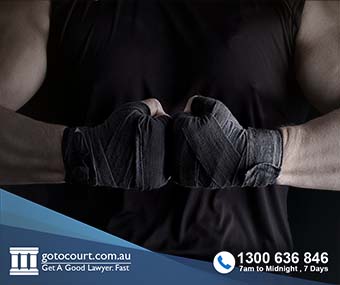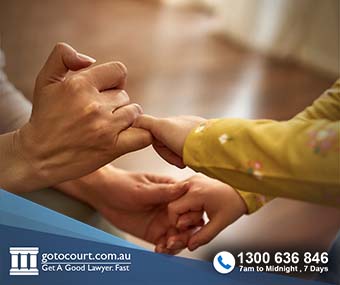Call our lawyers
now
or,
have our lawyers
call you
Assault in the NT
Updated on Jan 06, 2023 • 6 min read • 309 views • Copy Link
Assault in the NT
Offences involving assault in the Northern Territory are governed by the Criminal Code. Assault-based offences are divided into categories based on the nature of the assault, who the victim is, and the degree of injury suffered. This article deals with assault in the NT.
What is assault?
Assault itself is:
- the direct or indirect application of unlawful force to a person without their consent
- the direct or indirect application of unlawful force to a person with their consent if the offender obtained that consent by using force, threats, or some kind of fraud, or
- the attempted or threatened use of force, if the offender is in a position to carry out the threat or attempt and it is backed up by bodily movement or threatening words.
The law relating to assault in the NT applies to those over the age of 10. However, if the accused is under 14, they can’t be found guilty unless the prosecution can prove that at the time of the offence they were capable of understanding that their behaviour was wrong.
General offences involving assault in the Northern Territory
Common assault in the NT is the most basic assault-related offence:
- A person who assaults another faces a maximum penalty of 1 year in prison.
Higher penalties apply for assaults which occur in the context of committing a different offence:
- A person who assaults another while intending to commit another offence faces a maximum penalty of 3 years in prison.
The Criminal Code sets out conditions where an assault-based offence is considered aggravated. Penalties increase to 5 years for an aggravated assault. The conditions of aggravation include where the person assaulted:
- suffers harm (such as bruising, cuts)
- is a female and the offender is male
- is under 16 and the offender is an adult
- can’t defend themselves properly because of their age, health, or situation
- is a member of parliament assaulted because of their position
- is assisting a public servant or a Justice of the Peace to do their job
- is lawfully serving court documents or executing process
- is assaulted because of any unlawful conspiracy
- is indecently assaulted
- is threatened with a dangerous or offensive weapon.
Assaults on people in the course of their employment
If a person is assaulted in the course of their employment, greater penalties apply.
- For a worker – including an employee, contractor or subcontractor, apprentice or trainee, work experience participant or volunteer, self-employed person or an office holder, the maximum penalties range from 2 years to 5 years imprisonment if they don’t suffer harm, or 3 years to 7 years if they do.
- For a police officer on duty, the maximum penalties range from 2 years to 5 years in prison. If the police officer suffers harm it increases to 3 to 7 years. If they suffer serious harm, the maximum penalty is imprisonment for 16 years.
- For an administrator, judge or magistrate assaulted while they are performing their official functions or as a result of them doing so, the maximum penalty is 14 years imprisonment.
- Anyone who, while on a plane, assaults or threatens a member of the crew or makes threats to them regarding someone else on the plane intending to affect how they perform their duties, faces a maximum penalty of 14 years imprisonment.
Stalking and assault in the Northern Territory
Stalking may be considered an assault-based offence in that it falls into the threatened or apprehended assault category.
A person stalks another if they repeatedly do certain things, either to that person or to another, which would make the person feel apprehensive or to fear for their safety or the safety of another person, including:
- following them
- contacting them
- going to or hanging around the places where they live, work, or frequent
- interfering with their possessions
- sending or giving them offensive material or leaving it where they will see it, or
- having them under surveillance.
A person who stalks another faces up to 2 years imprisonment. However, if the stalking is in breach of a bail condition, an injunction, or an order of the court, or if the stalker had an offensive weapon, it increases to 5 years.
Sexual assault in the NT
Sexual assault in the NT includes acts of sexual intercourse and gross indecency that are committed without valid consent.
Sexual intercourse means the insertion of a penis or any other object into the vagina, mouth or anus of another, and cunnilingus or fellatio. A person is guilty of sexual assault if they know the other person is not consenting, or if they don’t concern themselves with whether the other person is consenting.
The maximum penalties are:
- for sexual intercourse without consent – imprisonment for life
- for performing an act of gross indecency – imprisonment for 14 years
- attempting to perform an act of gross indecency – imprisonment for 7 years
- if the person is an adult and the victim is under the age of 16 – imprisonment for 14 years
- attempting to perform an act of indecency and in doing so causing harm – imprisonment for 14 years. If the harm is serious harm – imprisonment for 17 years.
Possible defences to assault in the NT
As well as defences that are based on the facts of the assault, sometimes there may be defences of law. Those that may be relevant to an assault charge include:
- The person has already been found guilty, or acquitted, of the same or a similar charge from the same circumstances, unless the assault causes death or serious harm to another.
- It was justified. This only applies where the force isn’t likely to cause death or serious harm and includes:
- acting under order from an authority that a person must obey
- executing any sentence, process, or warrant, or making an arrest
- preventing an arrested person escaping
- preventing an offence being committed
- disciplining a child by parent or guardian
- preventing a suicide.
- Unwilled act or accident – if the actions were unintentional or the results were not foreseen as a possible consequence.
- Duress, which might arise if the victim believed the person threatening them was able to carry out the threat and that there was no other way to stop it, and the assault did not result in serious harm. Usually, the threat must be reported to police as soon as possible.
- In self-defence, including defending another person or, in some circumstances, property. The behaviour must be an appropriate response to the perceived threat.
If you require legal advice or representation in any legal matter, please contact Go To Court Lawyers.

Affordable Lawyers
Our Go To Court Lawyers will assist you in all areas of law. We specialise in providing legal advice urgently – at the time when you need it most. If you need a lawyer right now, today, we can help you – no matter where you are in Australia.How It Works







1. You speak directly to a lawyer
When you call the Go To Court Legal Hotline, you will be connected directly to a lawyer, every time.


2. Get your legal situation assessed
We determine the best way forward in your legal matter, free of charge. If you want to go ahead and book a face-to-face appointment, we will connect you with a specialist in your local area.


3. We arrange everything as needed
If you want to go ahead and book a fact-to-face appointment, we will connect you with a specialist in your local area no matter where you are and even at very short notice.


















